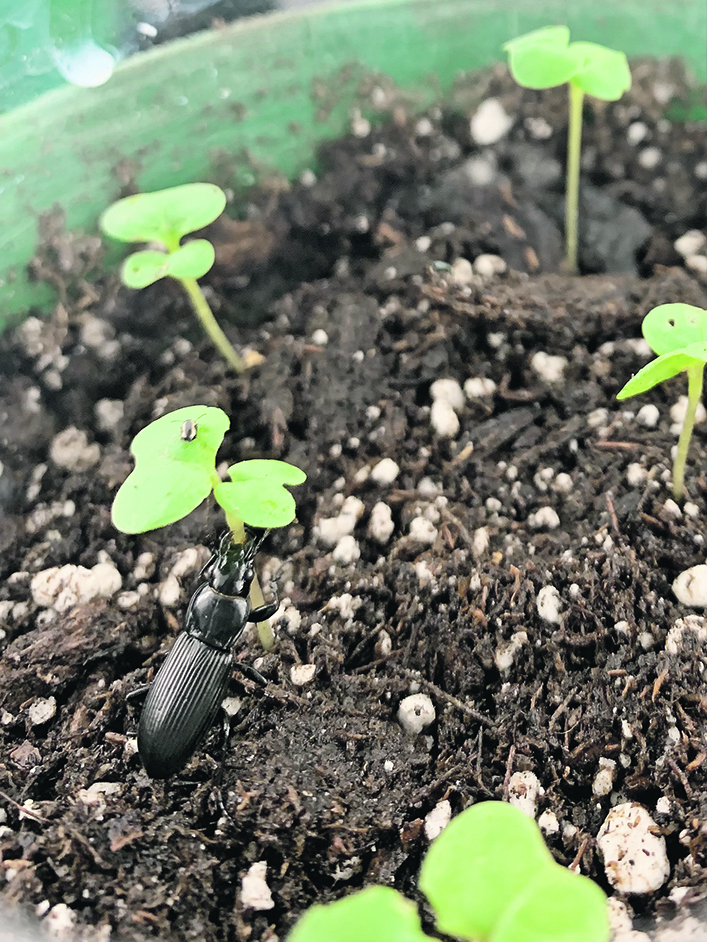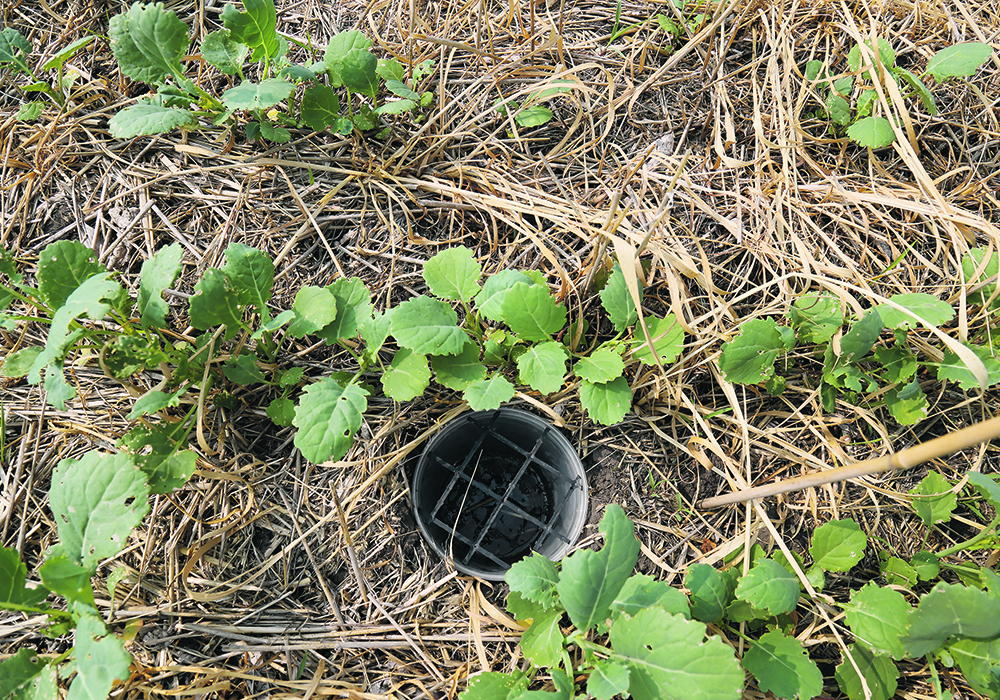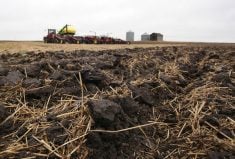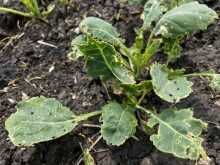Researcher says cover crops may make it harder for flea beetles to find canola, and can attract bugs that prey on the pest
Flea beetles can wreak havoc on canola but new research from the University of Manitoba could offer natural ways to control the pests.
Associate professor of entomology Alejandro Costamagna started research on the value of cover crops in 2022 on mitigating flea beetle damage in canola.
He said cover crops may help decrease flea beetle damage by making it more difficult for the pests to find canola plants.
“The second way will be by providing more stability to the system, more diversity to the system, which will result in a higher number of beneficial insects,” said Costamagna.
He chose oats and rye for last year’s cover crops and said alfalfa is a good next test candidate because it is great for attracting and maintaining beneficial insects.
“(Alfalfa) can harbour low levels of aphids and other pests that are not really pests in the crops. Pests are not widespread, but there are enough of them to maintain beneficial insects.”
Costamagna is using test sites at research centres in Glenlee and Carmen, Man., and has experimental plots with individual farmers.
In a separate study, Costamagna has been trying to incorporate pollinators into the mix by adding flower strips in field borders but not necessarily in canola fields.
“This was done in collaboration with growers, so we didn’t have the choice of the crop,” he said.
A few years into the study, results are showing a large increase in beneficial insects with the flowering perennials present.

As for natural flea beetle predators, Costamagna said there are several good candidates.
“We have done laboratory experiments so far looking into that and found that some species of common ground beetles, carabids, are very good predators, at least in the lab, and with potted plants and some spiders as well….”
Flea beetles overwinter in fields as adults and become active when temperatures reach 10 C. Waking up hungry, they go to the newly sprouted canola plants. They forage until they are ready to lay eggs at the base of the plant, and then the cycle starts anew, with the next generation feeding on the canola roots, then overwintering as mature adults. Most of the damage is done while the crop is young, at the two-to four-leaf stage.
Costamagna said farmers who see 25 percent defoliation or more caused by flea beetles should apply foliar insecticides if the plants are below the second true leaf stage.
For farmers looking to move away from insecticides, he recommended monitoring for crop damage early because flea beetles cause little lasting damage once the plant gets past the two-to-four-leaf stage.















